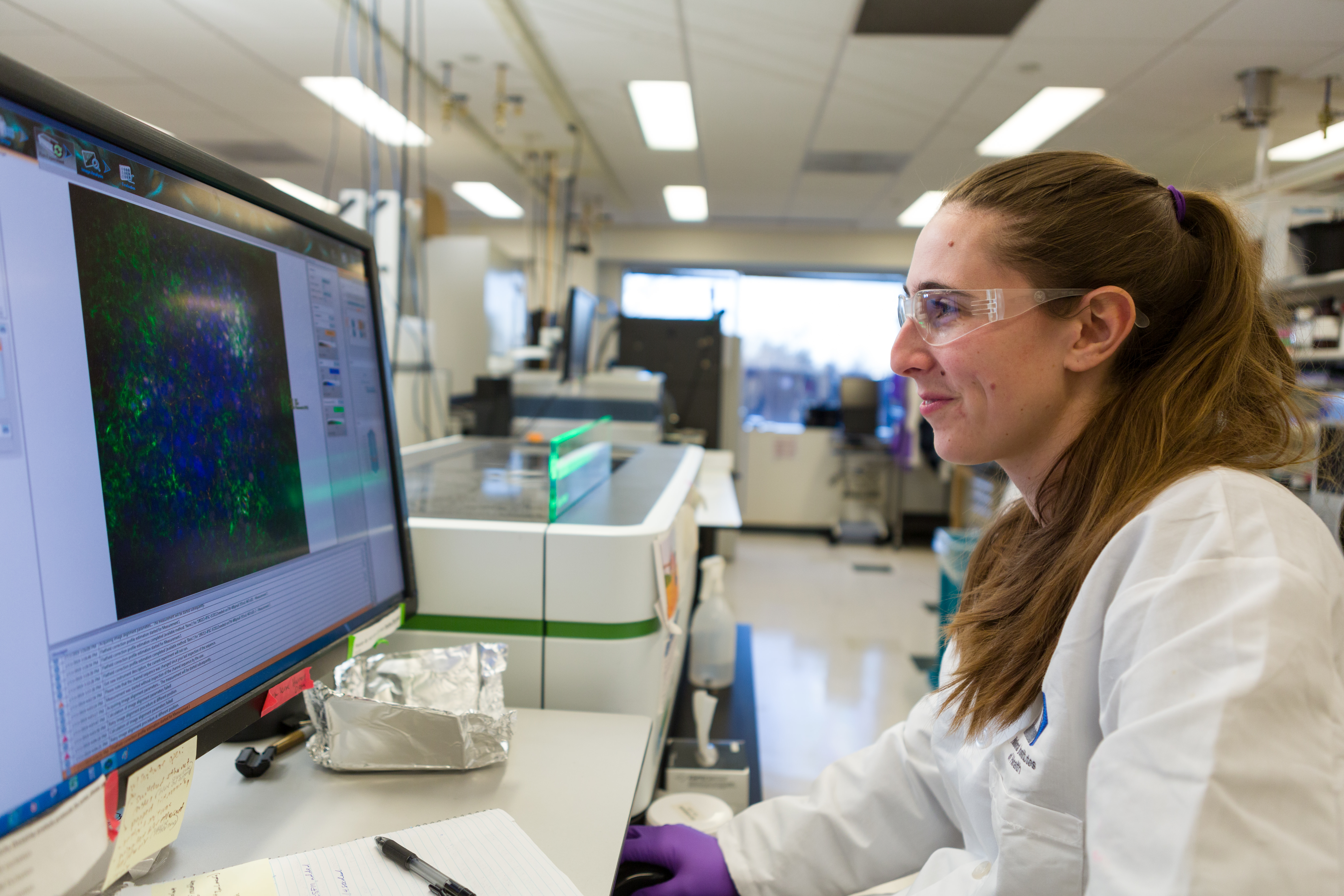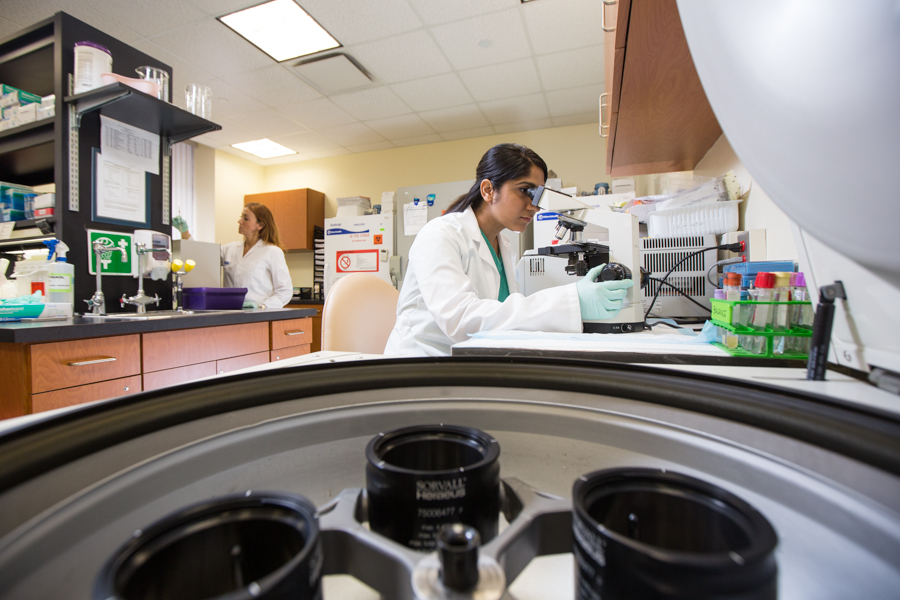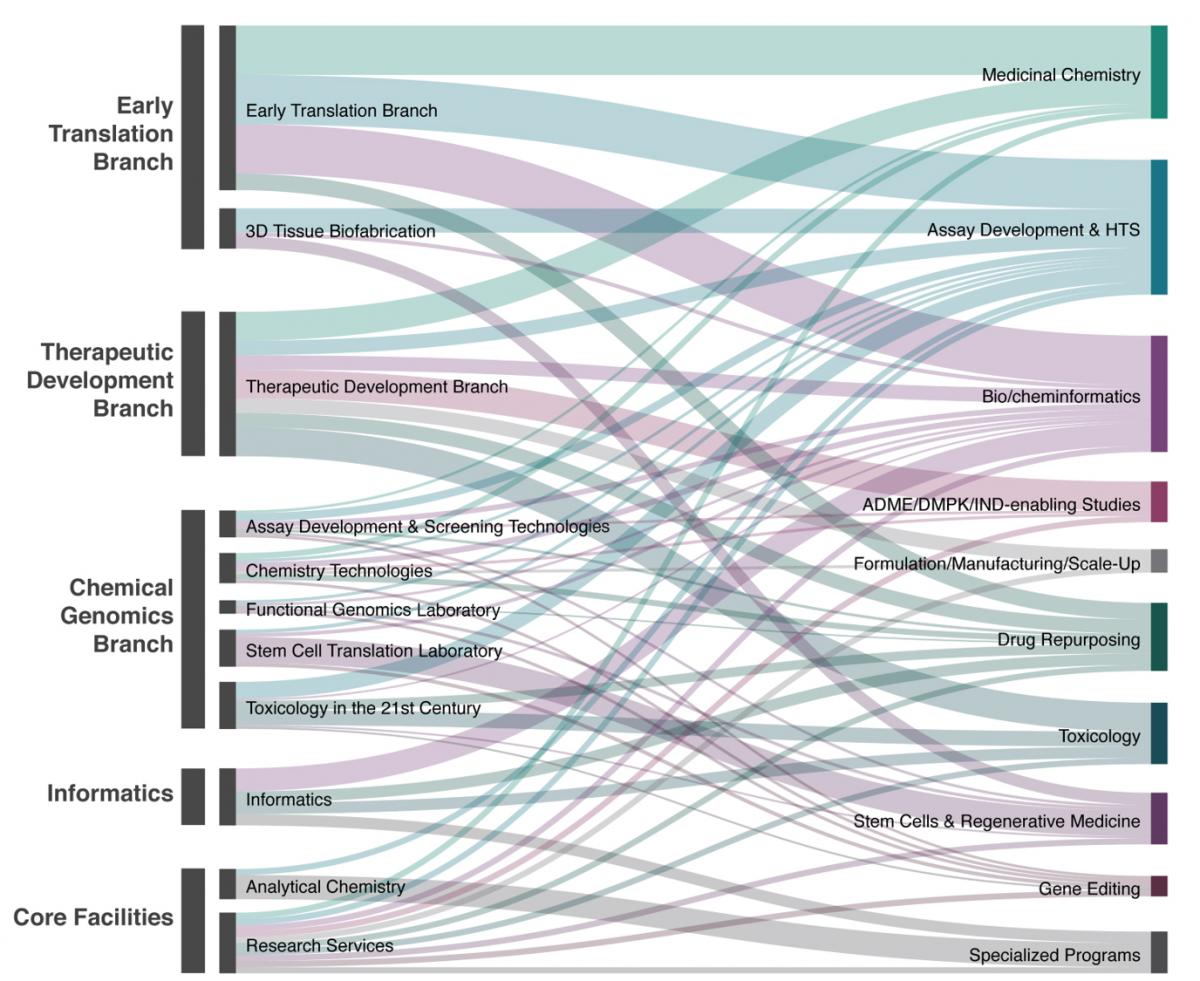Training at NCATS
We offer hands-on training in translational research and translational science in our state-of-the-art labs. Learn more about training with our Division of Preclinical Innovation.
Why Train at NCATS?
Contact
Intramural Education and Training Director
Dr. Belen Hurle
Intramural Trainee Development Lead
Dr. Belen Hurle
Learn More About the Intramural Program
Download the NCATS Intramural Program Flyer (PDF - 1.1MB)
The Division of Preclinical Innovation (DPI) operates our research program at NCATS, with state-of-the-art research labs located in Rockville, Maryland — a few miles from the main NIH campus in Bethesda, Maryland. We offer novel and holistic training opportunities for early career scientists, from undergrads through postdocs. Trainees gain translational science skills through hands-on research and a range of educational and professional development opportunities.
At the end of their training, fellows in DPI will:
- Understand that translational science is a growing field that generates scientific and operational innovations that solve longstanding challenges in the translational research pipeline.
- Identify where their research project fits within the translational science spectrum and be able to describe their unique contributions to advancing the research along the translational pipeline.
- Know the transition points for advancing this work from the preclinical to clinical and public health domains.
- Have an understanding of a range of translational science strategies and approaches to accelerate translational progress in the preclinical space.
- Be familiar with a range of career paths available to individuals with experience in preclinical translational research.
New to Translational Science? Ready to Start Your Career?

We offer many resources and educational materials to help build a basic understanding of translational science.

We are looking for talented translational scientists to join our team and use their skills to help advance our goal of getting more treatments to all people more quickly.
About Training at NCATS
DPI scientists generate scientific and operational innovations that improve the efficiency and effectiveness of the translational process. Examples include advancing new technologies to make preclinical research more predictive and efficient, possible drug targets less risky or research projects more attractive for commercial investment. More than 200 scientists from many disciplines are responsible for advancing the varied research portfolio of DPI. In addition to conducting cutting-edge laboratory research, DPI scientists work with research organizations worldwide.
Together, these individuals participate in a team science environment in which each project team brings together expertise in a broad range of disciplines, including:
- biology (biological and disease assay development)
- automation and engineering (high-throughput screening robotics)
- informatics and data analysis
- medicinal and analytical chemistry
- chemistry, manufacturing and controls
- drug formulation
- safety evaluation and toxicology
- drug metabolism, pharmacokinetics and adsorption, distribution, metabolism and excretion
- project management
Interdisciplinary Interactions and Organizational and Partnership Structure of DPI
The image illustrates a great strength of the DPI training program: interdisciplinary interactions. The image also shows that DPI research teams are organized around:
- Early Translational Branch (formerly NCATS Chemical Genomics Center), which includes 3-D Tissue Biofabrication
- Therapeutic Development Branch
- Chemical Genomics Branch, which includes Assay Development and Screening Technologies, Chemistry Technologies, Functional Genomics Laboratory, Stem Cell Translation Laboratory and Toxicology in the 21st Century
- Core Facilities, including Informatics, Analytical Chemistry, Drug Metabolism, Pharmacokinetics, and Research Services
Many of these research teams use similar technologies, skills and expertise, shown below, to complete their projects, resulting in substantial collaboration among disciplines as depicted by the overlapping ribbons. The complementarity of expertise in DPI creates an enriching environment in which fellows learn multiple skills from domain experts and gain additional scientific and career mentorship.

Explore our Research Activities to learn more about NCATS’ onsite research groups.


